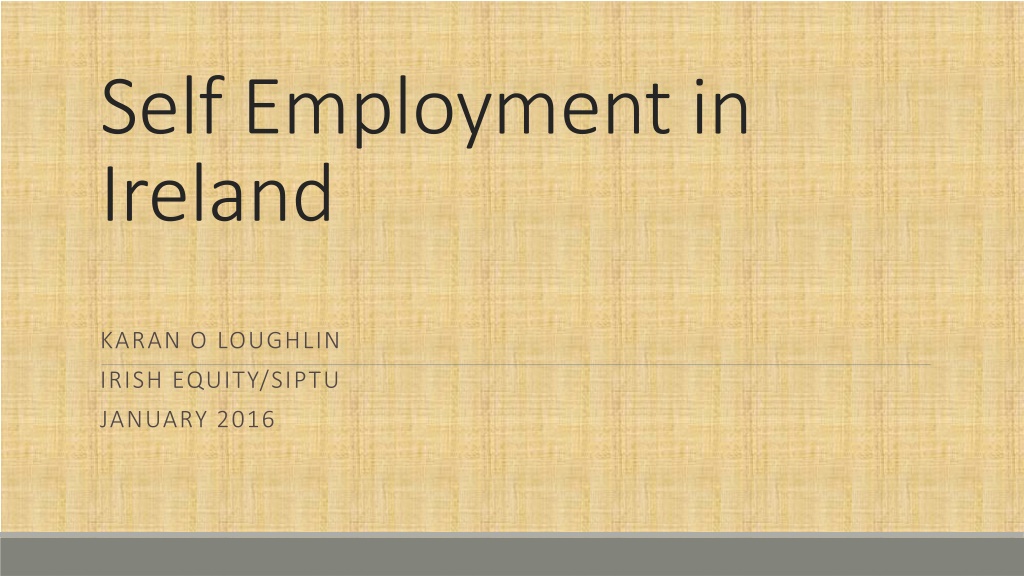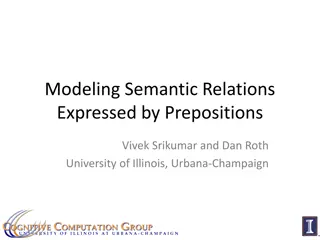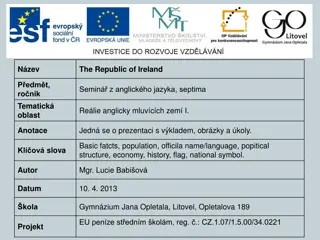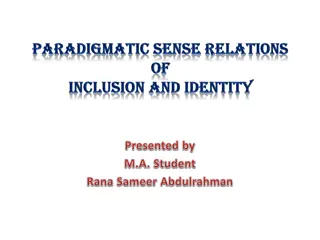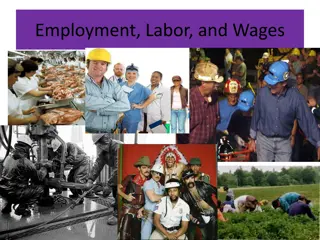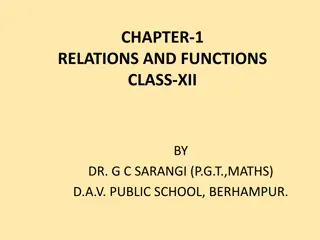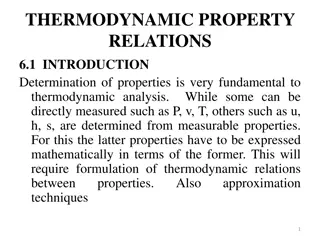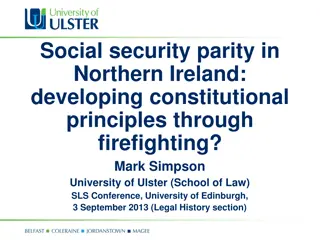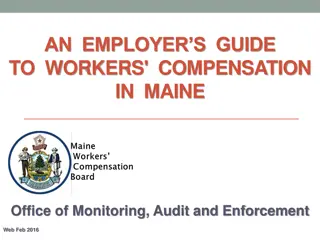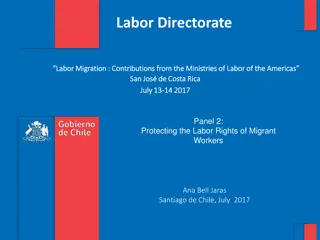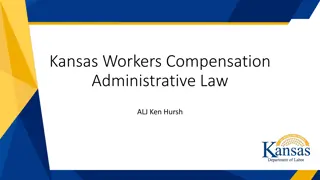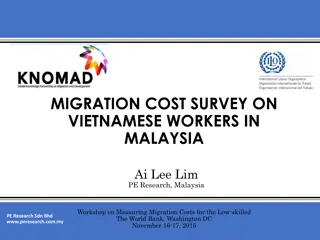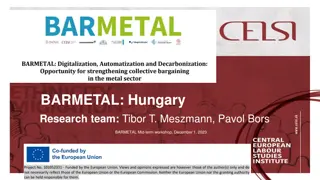Industrial Relations System in Ireland for Self-Employed Cultural Workers
Irish industrial relations system caters to self-employed cultural workers with a voluntarist style of collective bargaining. Despite limitations in bargaining rights, dialogue with the government has led to exemptions and legal precedents for worker definitions and compensation. The system faces implementation challenges due to its voluntarist nature. Recent court cases and legislative actions reflect ongoing debates surrounding worker classifications and rights.
Download Presentation

Please find below an Image/Link to download the presentation.
The content on the website is provided AS IS for your information and personal use only. It may not be sold, licensed, or shared on other websites without obtaining consent from the author. Download presentation by click this link. If you encounter any issues during the download, it is possible that the publisher has removed the file from their server.
E N D
Presentation Transcript
Self Employment in Ireland KARAN O LOUGHLIN IRISH EQUITY/SIPTU JANUARY 2016
Irish System Voluntarist Style of Industrial Relations for employees State Supported with Workplace Relations Commission and Labour Court Supported by individualised Statutory Rights for Employees Collective Bargaining Rights for Employees/ Trade Unions only
Cultural Workers Actors, Musicians, journalists, photographers, writers, Self Employed/Freelance 2004 Competition Authority Decision on Voice Over Artists and others Self Employed cannot be treated as employees => No Collective Bargaining
Actions Dialogue with Government=> Commitment to legislation to exempt cultural workers 2008 => Crash and Austerity => Trioka Irish Bailout More dialogue with Government supported by the ICTU and complaints by ICTU made to ILO
Actions 2010 Labour Court Case TF Productions and a Musician Referred under 20(1) of the Industrial Relations Act 1969 Recommendation Number LCR19705 considered definition of worker The term "worker" is defined by s 23 of the Industrial Relations Act 1990 as:- "23.- (1) In the Industrial Relations Acts, 1946 to 1976, and this Part, "worker" means any person aged 15 years or more who has entered into or works under a contract with an employer, whether the contract be for manual labour, clerical work or otherwise, whether it be expressed or implied, oral or in writing, and whether it be a contract of service or of apprenticeship or a contract personally to execute any work or labour including......"
Outcome Industrial Relations Act definition of worker covers a contract for services Compensation of 4,600 awarded for short notice cancellation of a contract for services Good precedent but problematic implementation => voluntarist nature of Irish IR Other pieces of legislation define Worker more tightly
Other Precedents In FERGUSON -V- JOHN DAWSON & PARTNERS (CONTRACTORS) LTD [1976] 1 WLR 1213, [1976] EWCA Civ 7, [1976] 3 All ER 817. No deductions for tax were made and the worker was obliged to follow defendant s instructions of what to do and when to do it. Also, the equipment was supplied by the defendant s company. The man was injured and contrary to the contract, the majority of the court found that he was an employee. SUNDAY TRIBUNE [1984] IR 505 case, the Court looked at arrangement by journalists where, for tax purposes, they were considered to be independent contractors, it was held not to be a determinative factor when assessing the relationship. Ms. Justice Carroll stated that the court must look to the realities of the relationship and the union asserts that in the case of Mr. Mills and Dublin Bus this was in reality, an employee/employer relationship. In HENRY DENNY & SONS Ltd v MINISTER FOR SOCIAL WELFARE [HC 1995] [SC1998] 1 IR 34 a merchandiser was considered not to be in business for herself and was ruled to be an employee
Use of Precedents Courts are consistent in saying that it is the reality of the relationship that defines the contract Dual system for Actors self employed and employee (theatre mostly) is not relevant for this matter (Sunday Tribune Case) Control and Integration tests have high value
Irish Developments ILO still playing out Dublin Bus Case awaiting outcome Competition Amendment Act has all party support Exempt trade unions from Consumer Protection Act to allow for Collective Bargaining Minister will look to Europe
Strategies Is there value in pursuing the ILO complaint and timelines => Implementation problems? Is there value in building case law for individual contracts => Limited effect unless there is a collective effect? Is there value in pushing forward on the Amendment Act in Ireland => not likely to survive in its current format? Is there value in developing a single pan european strategy => Having self employed individuals redefined as employees?
